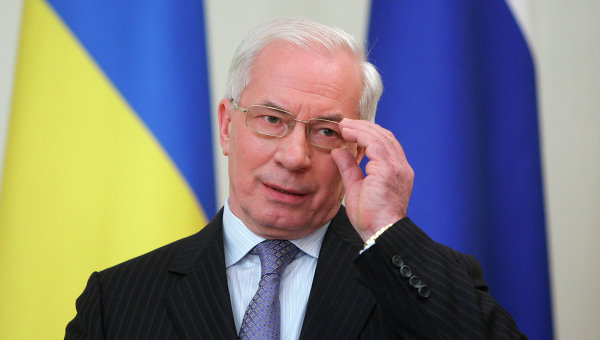
Ukrainian Government Formulates Liberal Tax Reform
Publication: Eurasia Daily Monitor Volume: 7 Issue: 160
By:

On September 3, the Ukrainian government presented a tax reform which should make the country more attractive to foreign investors and promote economic reform. Prime Minister, Mykola Azarov, stated that Ukrainian taxes would “probably be the lowest in Europe” (UT1, September 3). Several of the country’s western neighbors have taxes lower than those proposed by Azarov, but the reform, if approved by parliament, will be a huge step forward for a country ranked by the World Bank this year as the third worst among the world’s 183 economies in the ease of paying taxes. This will be the first significant economic reform conducted by the team of President Viktor Yanukovych and Azarov.
Tax reform in Ukraine began in the 1990’s, but it was not liberal. Consequently, Ukraine developed a complicated system with taxes too high for an emerging economy and conducive to tax evasion schemes. The first attempt to liberalize taxation was taken in 2004 by the government of the then Prime Minister, Viktor Yanukovych, and his Finance Minister, Mykola Azarov. Corporate profit tax was lowered from 30 to 25 percent and a progressive personal income tax scale was replaced with a 15 percent flat tax. The taxation system was not changed in 2005-2009 as the then President, Viktor Yushchenko, did not prioritize economic reform.
However, Yanukovych, after his election as president last February, listed tax reform among his main priorities. The process of drafting new tax legislation has not been smooth. Initially, such efforts lacked coordination and several competing draft reforms appeared. In June, parliament gave preliminary approval to the tax code bill, which was drafted by a team of experts under the supervision of the liberal Deputy Prime Minister, Serhy Tyhypko. Nonetheless, Yanukovych, the business community and the opposition rejected the bill arguing that it would not simplify taxation or ease the tax burden on business. A bill published in the government daily Uryadovy Kuryer on August 3, proposed jointly by the finance ministry and the tax administration, was so bad that Yanukovych’s economic aide, Iryna Akimova, said it would never be signed into law (Kommersant-Ukraine, August 12).
The full text of the third version of the tax reform had not been published by September 3, when Azarov promoted it during a press conference, but it was promised to be radically different from previous blueprints. Azarov, Tyhypko, another Azarov deputy, Borys Kolesnykov and Finance Minister, Fedir Yaroshenko, limited themselves to presenting only the main points and figures at the press conference. Azarov and Yanukovych hope that parliament will pass the bill early next week at the latest in order that the 2011 state budget bill (which the cabinet has to submit to parliament by September 16) should be based on new taxes. Given the solid majority controlled by the ruling coalition in parliament, the bill should be passed smoothly. The communists indicated that they would oppose the bill and insist on Tyhypko’s dismissal for making the document too liberal, but the communist caucus is too small to influence the final outcome.
Azarov said that the blueprint provides for lowering corporate profit tax from the current 25 to 19 percent in 2011 then gradually to 16 percent by 2014. Zero profit tax will be offered to small businesses, light industry and hotels. Value-added tax (VAT) will be lowered from the current 20 percent to 17 percent by 2014. Azarov promised that the new tax code will oblige the government to automatically refund VAT to exporters and that the government would pay fines for failing to comply (UT1, September 3). The government’s failure to refund VAT on time was among the main problems faced by foreign investors and key domestic industries such as metals and grain farms. The government has to resolve this problem by the end of the year in order to meet the terms for the continuation of the International Monetary Fund’s $15 billion assistance program.
The opposition has thus far offered little criticism of the taxation reform plan. Several opposition deputies criticized selected provisions such as the tax holidays for light industry which, they argued, would be at the expense of other industries. Moreover, the leader of the parliamentary caucus of former Prime Minister, Yulia Tymoshenko, Serhy Sobolev, hinted that the caucus might support communist calls for Tyhypko’s resignation (Kommersant-Ukraine, September 6). Yet, it seems that several innovations proposed by the government will unduly punish the nascent middle class, which was hit especially hard by the economic crisis. These include a deposit tax for bank deposits exceeding the equivalent of $25,000, property tax for the owners of relatively large apartments and country houses, and an increase in personal income tax from 15 to 17 percent for salaries exceeding ten minimum monthly wages; therefore the higher rate will apply to salaries of around $1,200. This is as much as a mid-career manager earns in the capital Kyiv. At the same time, the government has apparently dropped its earlier plans to levy luxury taxes on the buyers of yachts and luxury cars.




